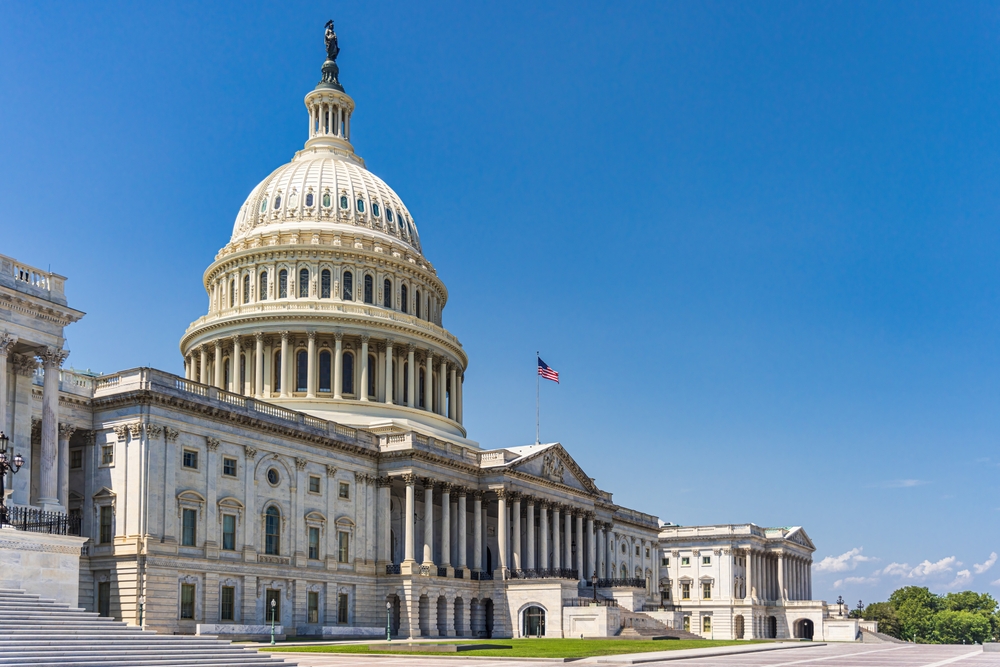The United States Senate has passed a long-awaited funding bill that could end the nation’s longest-ever government shutdown within days. Senators voted 60-40 late on Monday, with nearly all Republicans and eight Democrats supporting the deal. The agreement funds government operations through the end of January.
The measure now moves to the House of Representatives, which must approve it before President Donald Trump can sign it into law. Trump said earlier on Monday that he was ready to support the deal. The breakthrough followed weekend talks between both parties aimed at restarting federal services and returning employees to their posts.
Bipartisan Effort Breaks the Deadlock
Republicans, who hold a 53-47 majority in the Senate, needed at least 60 votes to pass the measure. Democratic Senators Dick Durbin, John Fetterman, Catherine Cortez Masto, Maggie Hassan, Tim Kaine, Jackie Rosen and Jeanne Shaheen joined Republicans in voting for it. Maine’s independent senator Angus King, who often sides with Democrats, also backed the deal.
Only one Republican, Rand Paul of Kentucky, voted against the measure alongside most Democrats. When the result was announced, the few senators remaining in the chamber applauded. “We are reopening the government and ensuring that federal employees are paid what they have earned,” said Republican Senator Susan Collins, one of the bill’s main architects.
Nation Feels the Weight of the Shutdown
The government has been partially closed since October, leaving about 1.4 million federal workers unpaid or working without compensation. The shutdown has disrupted air travel, food programs and other essential services across the United States.
According to FlightAware, more than 2,400 flights were cancelled on Monday and about 9,000 delayed. Food aid for 41 million low-income Americans has been halted. Several federal agencies have slowed operations or shut down entirely, leaving many communities struggling.
House Faces High-Stakes Vote
The bill now heads to the House of Representatives, where Republicans hold a slim two-seat majority. Lawmakers have been away from Washington since mid-September, but Speaker Mike Johnson has called them back for a vote starting Wednesday.
Every vote will count, and it remains unclear how long the process will take. Pressure is mounting from both parties to end the shutdown swiftly and restore public services.
Details of the Funding Package
The deal funds the government through 30 January. It provides full-year budgets for the Department of Agriculture, military construction, and legislative agencies. The agreement also guarantees back pay for all federal workers affected by the shutdown and extends the Supplemental Nutrition Assistance Program (SNAP) through September next year.
The package includes a December vote on extending healthcare subsidies that are set to expire this year. These subsidies help millions of Americans pay for health insurance through government marketplaces. Democratic leaders had refused to support any new funding without this provision.
Democrats Split Over the Compromise
The agreement was negotiated by Senate Majority Leader John Thune, the White House, and Democratic Senators Jeanne Shaheen and Maggie Hassan of New Hampshire, along with Angus King of Maine. But the deal has exposed divisions within the Democratic Party.
California Governor Gavin Newsom criticised the move as “pathetic.” Senate Minority Leader Chuck Schumer said the package “does nothing to address America’s healthcare crisis.”
Virginia Senator Tim Kaine, who supported the bill, defended the compromise, saying federal workers in his state were “grateful” for action to end the shutdown. Thune has promised to revisit the healthcare subsidy issue in December, though Speaker Johnson has said he will not bring it to a House vote.
Trump Ready to Sign the Deal
President Trump expressed optimism earlier on Monday, saying from the Oval Office, “We’ll be opening up our country very quickly. The deal is very good.”
If the House passes the measure, the government could reopen within days, bringing relief to millions of Americans affected by the shutdown and marking the end of a political standoff that has paralysed Washington for months.



